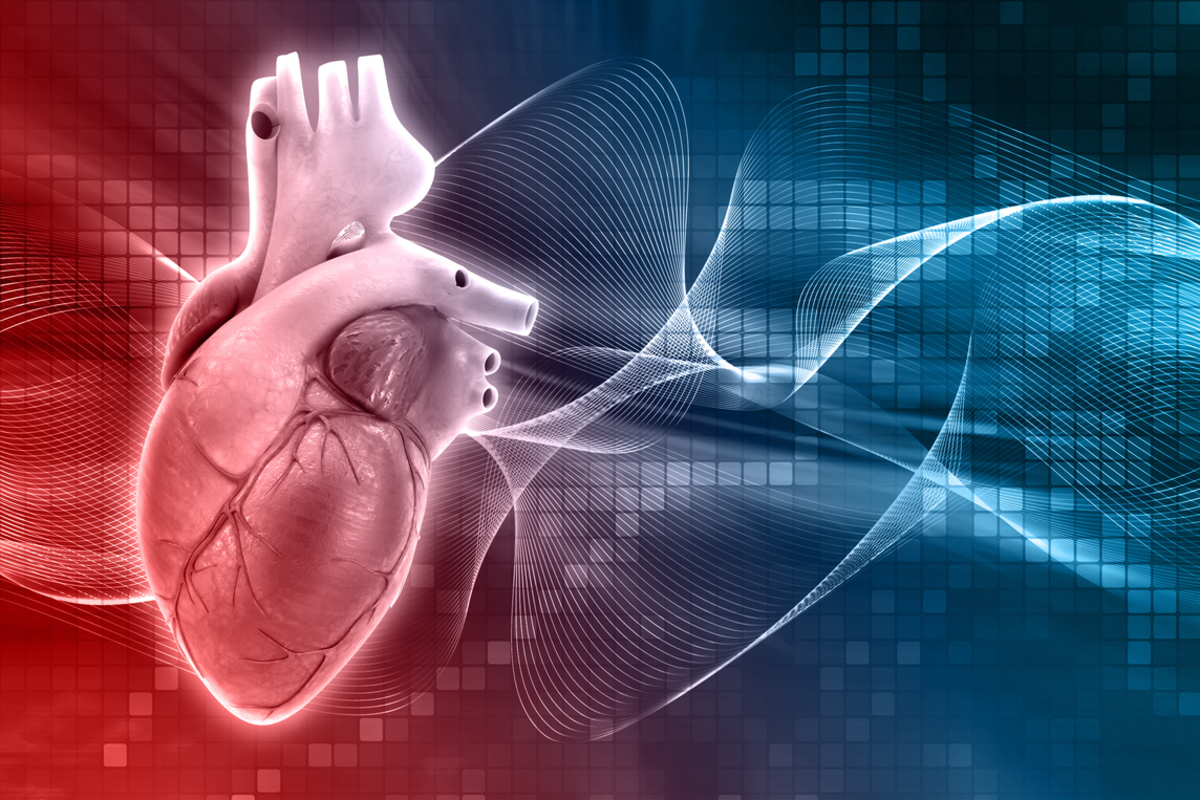Usually, an adult heart has electrical signals that control when blood can enter or leave the heart, causing the entries (called atria) and then the exits (ventricles) to contract. In ideal situations, if the electrical signal tries to send blood through the heart too quickly, a node called the "A-V node" will stop it. Simply, this will usually result in an average adult heartbeat of 60-100 beats per minute.

1. Arrhythmia: A silent killer
Cardiac deaths are the leading cause (30 percent) of death globally, and it's estimated that about 45 percent of these deaths are sudden cardiac deaths. Eighty percent of these deaths are caused by ventricular tachycardia, a type of arrhythmia where your heart beats too fast. In short, about 11 percent of the world's deaths are caused by only one kind of arrhythmia, and the survival rate for sudden cardiac arrest is under one percent worldwide.
Arrhythmia affects over two million people in the United Kingdom alone — or three to four percent of the population. This is somewhat misleading, however, as the risk of the most common type of arrhythmia grows when you get older. Also, drinking and obesity — the negative consequences of which accumulate with time — are risk factors for this type of arrhythmia. This doesn't even take into account that heart-related problems increase in lethality and frequency as you get older (such as cardiac arrest).
2. What causes arrhythmia?
Arrhythmia can be caused by several different factors, ranging from medicines to blood imbalances. It's often set off by a trigger but will continue if there is a heart problem. An arrhythmia can't always be explained, however, so sometimes the condition may form without an apparent cause. Some of the causes of arrhythmia include:
- Certain medicines, medicines that treat high blood pressure for example.
- Improper electrical signals, where the electrical signals that cause the pumping of the heart are delayed or blocked.
- Imbalances in your blood such as sugar or hormones (like the thyroid hormones) can trigger or cause arrhythmia.
- Strong emotional response like stress and anger can sometimes lead to arrhythmias.
- With a heart disease, sometimes physical activity can trigger arrhythmia as well.
- The heart physically changing, such as reduced blood flow, heart damage, and scarring, can cause arrhythmia. The damage caused by heart attacks can be one such cause.
- A congenital heart disease, or an enlarged heart.
- Drugs and substances such as smoking, caffeine, and alcohol.
3. What are some risk factors associated with arrhythmia?
Although arrhythmia can't always be prevented, there are ways to attempt to avoid some of the risk factors. Not all of these risk factors are avoidable, however. Here are a few of said factors:
- Smoking and second-hand smoke.
- Caffeine, alcohol, and recreational drugs.
- Strong emotions, such as stress, anger, anxiety, or fear.
- Not going to the doctor frequently; the more checkups, the more likely it is your doctor will notice an unforeseen problem with your heart.
- Not talking to your doctor about treating related heart problems that may cause arrhythmias, such as clogged arteries, high blood pressure, and diabetes.
- Obesity.
- Old age.
- High "bad" cholesterol levels.
- Unhealthy, high-fat food diets, and avoiding vegetables and fruits.
- A lack of exercise.
4. Arrhythmia: What kind of symptoms might one see?
Certain arrhythmias may not have any symptoms at all, but the symptoms can also be severe or life-threatening. Here are some of the possible signs that could indicate an arrhythmia:
- Chest Pain
- Fainting
- Lightheadedness
- Palpitations (The feeling of an odd heartbeat)
- Shortness Breath
- Extreme tiredness
- Foggy thinking
5. But how is arrhythmia treated?
The treatments for arrhythmia depend on the cause and severity of the condition. In severe cases electrical therapy is employed, a pacemaker (sometimes permanent) is inserted, or other surgery is required. In other situations, a person may only require certain medicines.
6. Atrial fibrillation
Atrial Fibrillation is the most common type of arrhythmia. During atrial fibrillation, the electrical signals controlling the heart's entrances (atria) contractions fire far more rapidly than usual. The atria can't contract effectively at these speeds (often attempting five to seven beats per second) and just quiver. The exits (ventricles) are meant to contract shortly after the atria, and luckily your heart stops the signals from making the ventricles contract just as quickly. They are still faster than usual, and your heartbeats become irregular.
7. Do the same things cause atrial fibrillation?
It's unsure what causes atrial fibrillation, but the rate of the disease jumps from two percent to nine percent for those over 65, so age is one factor that affects the risk. Other risk factors for atrial fibrillation are:
- Genetics, the disease can be hereditary.
- Gender, it occurs 50 percent more frequently in men.
- Other heart conditions, conditions such as high blood pressure and coronary heart disease are linked to atrial fibrillation.
- Several medical conditions such an overactive thyroid (hyperthyroidism) as well as lung disorders.
- Smoking and excessive drinking.
- Being more angry and hostile increases the risk for men.
8. Are the symptoms of atrial fibrillation more severe than other arrhythmias?
The symptoms for atrial fibrillation can vary and get worse as you age, and healthy men may not even realize something is wrong. Others may notice a strange heartbeat, or fatigue and not being able to tolerate exercise. More severe symptoms such as fainting, low blood pressure, and difficulty breathing may also present themselves. The most deadly fact of atrial fibrillation is that it increases the chance of fatal complications such as stroke, heart failure, and blood clots. As always, be sure to talk to your doctor about these symptoms if you have them.
- Photo courtesy of SteadyHealth
- www.sciencedirect.com/science/article/abs/pii/S002207360700667X?via%3Dihub
- www.hrsonline.org/patient-resources/risk-factors-prevention
- www.nhs.uk/conditions/heart-palpitations/
- www.nhs.uk/conditions/arrhythmia/
- www.nhlbi.nih.gov/health-topics/arrhythmia
- medlineplus.gov/ency/article/001101.htm
- www.health.harvard.edu/a_to_z/cardiac-arrhythmias-a-to-z
- www.nhlbi.nih.gov/health-topics/atrial-fibrillation
- www.cdc.gov/dhdsp/data_statistics/fact_sheets/fs_atrial_fibrillation.htm
- www.health.harvard.edu/heart-health/atrial-fibrillation-common-serious-treatable
- medlineplus.gov/ency/article/000184.htm


Your thoughts on this